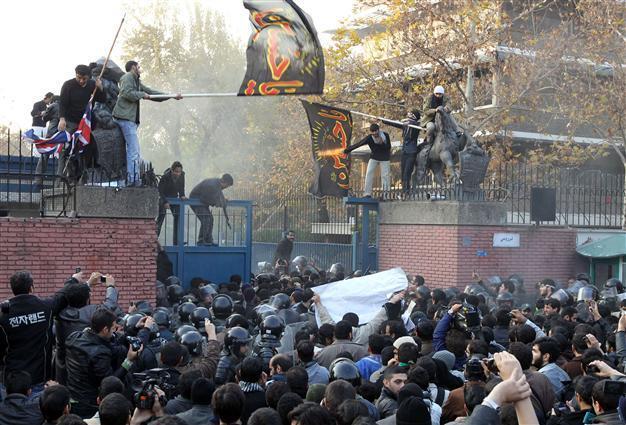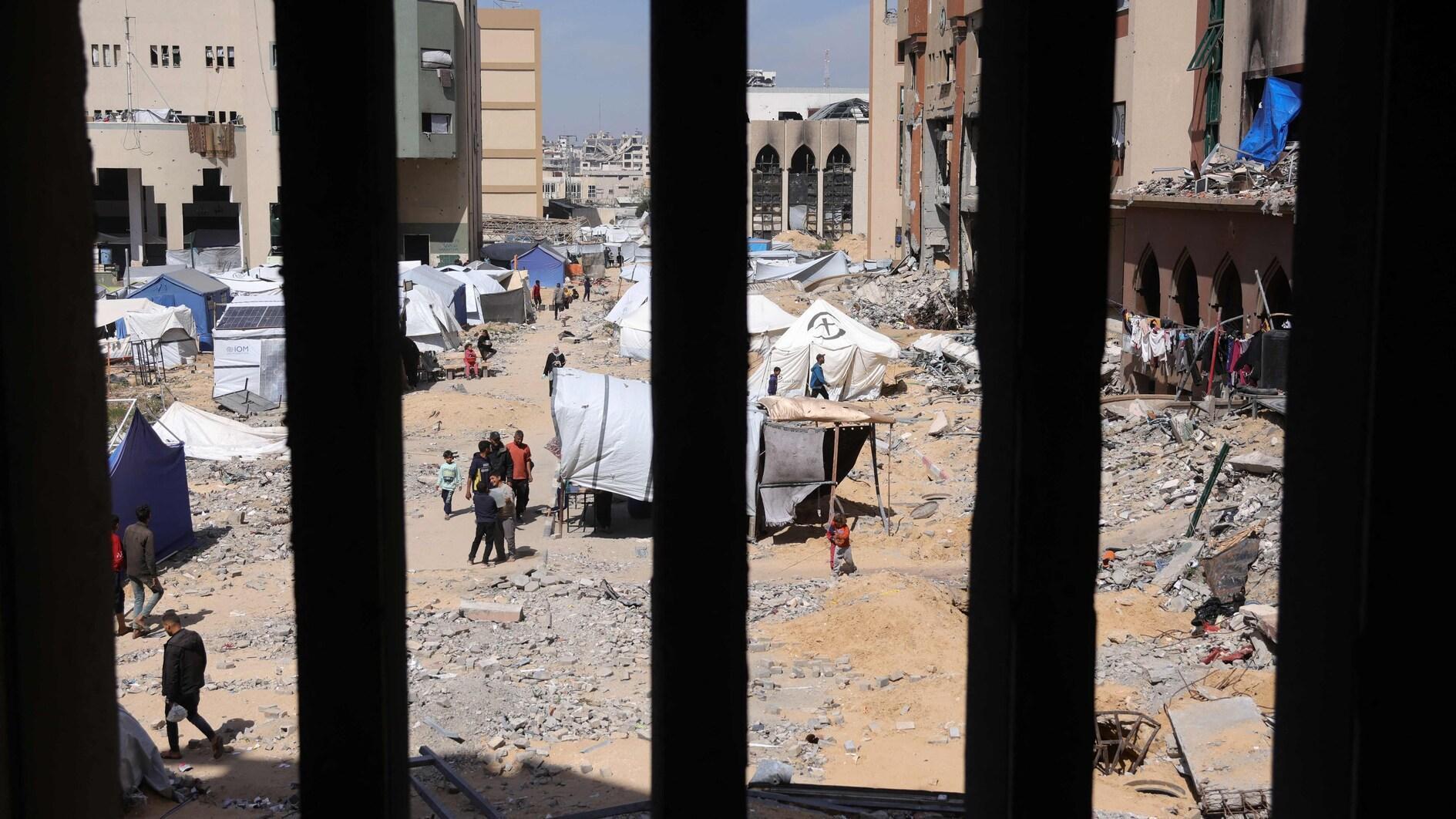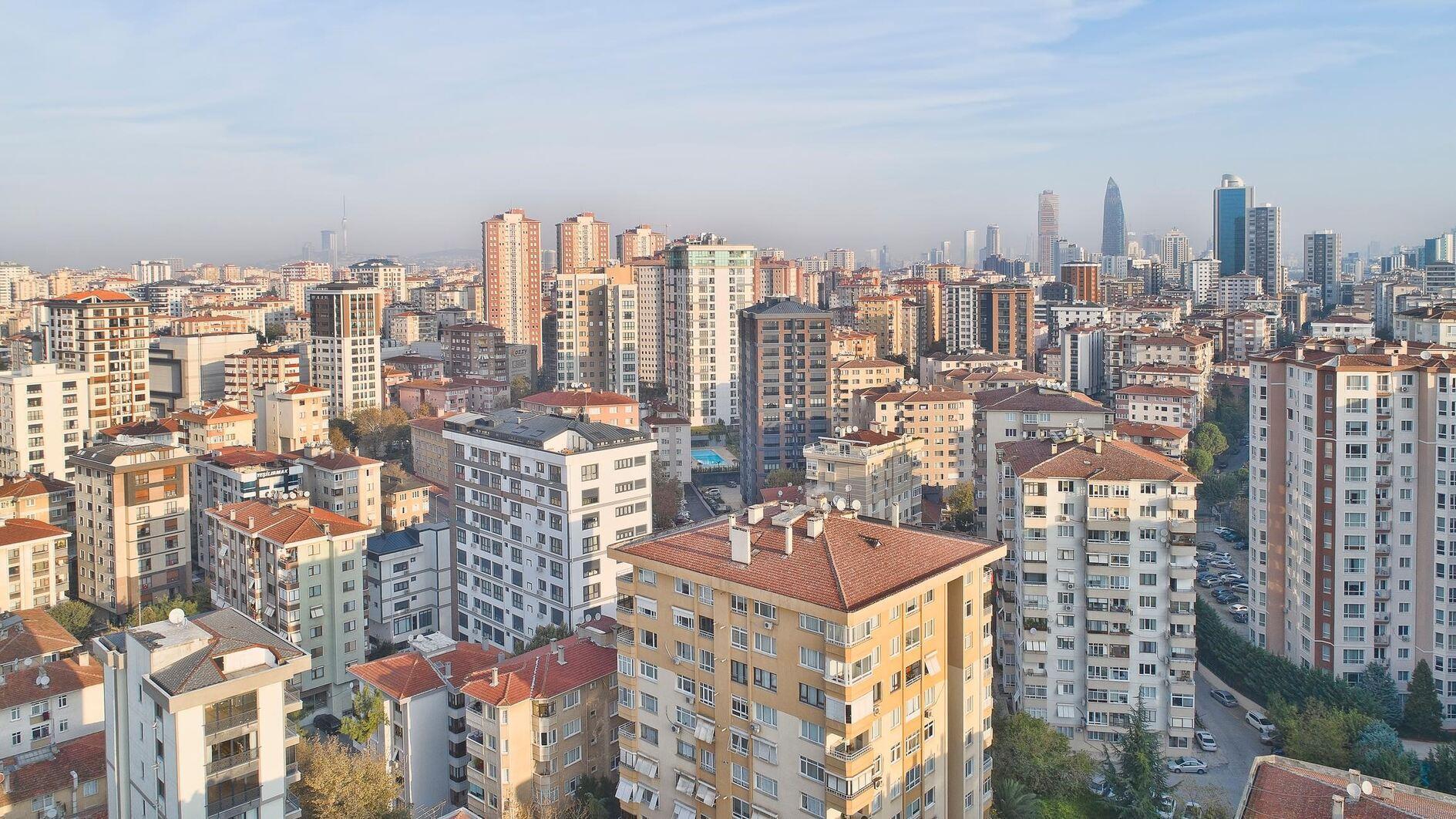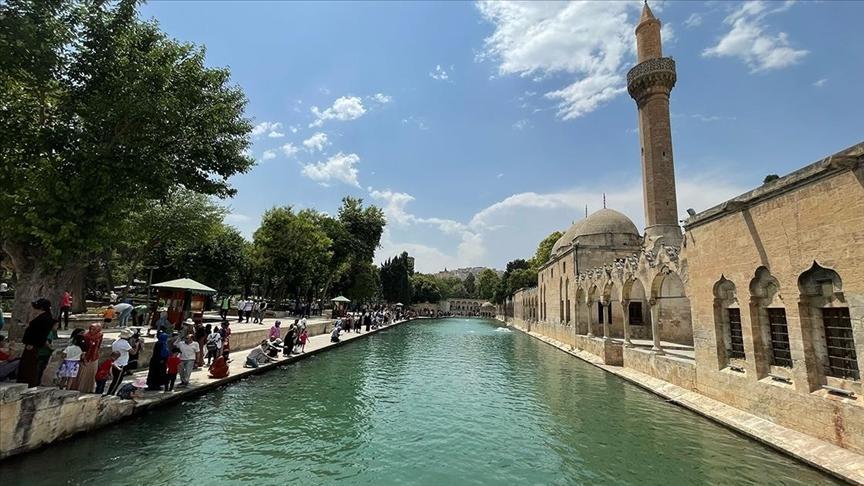Britain sees thaw with Iran, will reopen Tehran embassy
LONDON / VIENNA

Protesters gather outside the British embassy as some break into it and bring down the British flag (L) in Tehran in this 2011 photo. Britain plans to reopen its embassy in Iran, Foreign Secretary Hague said. AFP photo
Britain plans to reopen its embassy in Iran, Foreign Secretary William Hague announced June 17, as the West steps up its engagement with Tehran amid rapid jihadist advances in neighboring Iraq.The British embassy in Tehran closed nearly three years ago after it was stormed by a mob angry at sanctions imposed over Iran’s nuclear program.
“The circumstances are right to reopen our embassy in Tehran. There are a range of practical issues that we will need to resolve first,” Hague said in a written statement to parliament.
“However, it is our intention to reopen the embassy in Tehran with a small initial presence as soon as these practical arrangements have been made.”
Hague’s statement to parliament’s lower House of Commons did not directly mention the situation in Iraq but noted that “Iran is an important country in a volatile region.” He later told MPs in person that Iran had historically played a “divisive and sectarian” regional role but added: “We look to it to desist from that and we will use the expansion of bilateral relations to press for that.” Diplomatic ties between Iran and Britain were strained long before the closure of the embassy in 2011.
There have been a string of major flare-ups in recent decades including over a fatwa issued against British author Salman Rushdie by Supreme Leader Ayatollah Khomeini in 1989 and the seizure of 15 British sailors by an Iranian naval patrol in the northern Gulf in 2007.
Britain appointed a non-resident charge d’affaires to Iran in November, restoring direct diplomatic contacts severed in 2011.
Talks re-launched
Hague said he took the decision to move towards re-opening the embassy after a phone call with Iranian Foreign Minister Javad Zarif on June 14. He added there had “never been any doubt in my mind that we should have an embassy in Tehran if circumstances allowed.” Meanwhile, Iran and six world powers re-launched talks to rescue prospects for a deal on Tehran’s nuclear activity by a July deadline.
The talks, coordinated by European Union foreign policy chief Catherine Ashton, stumbled during the last round in mid-May. Both sides accused the other of lacking realism in their demands and French Foreign Minister Laurent Fabius said the negotiations had “hit a wall.”
“We don’t have illusions about how hard it will be to close those gaps, though we do see ways to do so,” a senior U.S. official said June 16, signaling the pace of diplomacy would intensify in the days and weeks ahead.
However, sounding a cautiously hopeful note after a bilateral U.S.-Iranian meeting in Geneva last week, the official said that “we are engaged in a way that makes it possible to see how we could reach an agreement.”
Foreign Minister Zarif, Ashton and the U.S. delegation, led by Under Secretary of State Wendy Sherman and including Deputy U.S. Secretary of State Bill Burns, held trilateral talks on June 16 ahead of the start of formal negotiations. Diplomatic sources have told Reuters that it is increasingly likely Iran will seek an extension of the talks deadline.
But Western officials insisted the focus remained on sealing the deal by late next month, noting that any extension must be agreed by all sides and would likely be short. The seven states agreed on the July deadline to reach a comprehensive agreement as part of an interim deal on the decade-old nuclear stalemate in Geneva struck on Nov. 24.
That accord - under which Iran suspended some sensitive nuclear activities in exchange for limited sanctions relief - allowed for a six-month extension if necessary for a settlement.
















